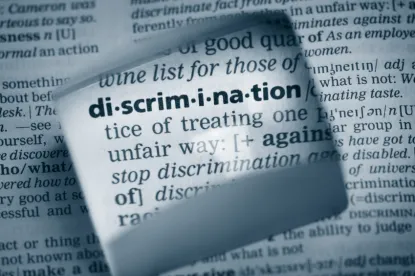On May 8, 2019, the Seventh Circuit reaffirmed its test for determining employee status under federal anti-discrimination laws, holding that a physician lacked standing to bring Title VII claims against the hospital at which she maintained practice privileges because she was not an employee. Levitin v. Northwest Community Hospital, No. 16-cv-3774.
Background
Plaintiff owned and operated her own private practice, but maintained practice privileges and performed surgeries at the defendant hospital. After a series of complaints, the hospital subjected Plaintiff to a peer-review process, which ultimately led to the termination of her practice privileges. Plaintiff proceeded to file suit, claiming her privileges were terminated in retaliation for her complaint in violation of Title VII. She claimed the hospital effectively employed her because it subjected her to on-call requirements, reporting requirements, supplied her tools to use during surgery, restricted the types of procedures that she could perform, and subjected her to a peer-review process. Plaintiff argued that the peer-review process held her to a higher standard than basic professional or regulatory medical education standards, and thus amounted to sufficient control over her work as a surgeon such that the hospital was her employer.
Ruling
The U.S. District Court for the Northern District of Illinois granted summary judgment in the hospital’s favor, concluding Plaintiff was not an employee and therefore not subject to Title VII’s protections. The Seventh Circuit affirmed, reaffirming its test for determining employee status under Title VII.
The Seventh Circuit examined the “economic realities of the relationship” by considering the following factors:
(1) the extent of the employer’s control and supervision over the worker, including directions on scheduling and performance of work;
(2) the kind of occupation and nature of skill required, including whether skills are obtained in the workplace;
(3) responsibility for the costs of operation, such as equipment, supplies, fees, licenses, workplace, and maintenance of operations;
(4) the method and form of payment and benefits; and
(5) the length of job commitment and/or expectations.
The Seventh Circuit emphasized the significance of the first factor, stating “‘[t]he employer’s right to control is the most important’ of these factors.”
In reaching its conclusion that Plaintiff did not share an employer-employee relationship with the hospital, the court considered the following facts: the hospital did not provide Plaintiff with employment benefits or pay her professional licensing dues; Plaintiff owned her own medical practice; Plaintiff billed her own patients directly; Plaintiff filed taxes as a self-employed physician; Plaintiff set her own hours; Plaintiff could obtain practice privileges at other hospitals; Plaintiff could use her own staff in surgeries; and Plaintiff made her own treatment decisions for patients. Moreover, the Seventh Circuit noted that even if the peer review proceedings went beyond typical regulatory standards, they did not result in sufficient control over Plaintiff so as to create an employer-employee relationship, in part because Plaintiff ultimately made her own decisions regarding patient care.
Implications
This ruling reaffirms the Seventh Circuit’s test regarding the employer-employee relationship, which was first articulated in Knight v. United Farm Bureau Mut. Ins. Co., 950 F.2d 377 (7th Cir. 1991). It also provides clarity and guidance on worker classifications, particularly for healthcare entities.





 />i
/>i

